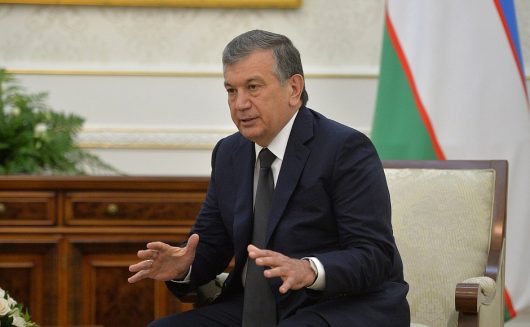10 Facts About Uzbek Refugees

The Republic of Uzbekistan is a Central Asian country with a population of about 32 million. From 1924 to 1991, Uzbekistan was a constituent republic within the Soviet Union. Since gaining independence in 1991, the Uzbek people have been dominated by an authoritarian government. Here are 10 critical facts about Uzbek refugees from the former Soviet state:
- According to the World Bank’s most current released data, there were 4,205 Uzbek refugees spread out across the world in 2015. This fact makes Uzbekistan the largest source of refugees in Central Asia, ahead of Kazakhstan, Kyrgyzstan, Tajikistan and Turkmenistan. These are all former Soviet republics as well.
- The number of Uzbek refugees is decreasing. Despite the world’s refugee population growing by millions annually since 2011, the Uzbek refugee population has declined each year in the same amount of time. The Uzbek refugee population is about a third of the size it was in 2011.
- Uzbek refugees often flee what the Human Rights Watch has described as an “abysmal” state of human rights in Uzbekistan. The country does not allow independent criticism and denies Uzbeks fundamental freedoms in regards to religion and expression.
Torture is commonplace in the Uzbekistan justice system, and adults and children are subjected to forced labor. Collecting data on Uzbekistan, especially on its human rights violations is difficult. This lack of information is due to Uzbekistan refusing to allow U.N. human rights experts access to the country since 2002. - Some Uzbek refugees leave Uzbekistan because of their sexual orientation. Homosexual relations carry a maximum prison sentence of three years in Uzbekistan.
- Many Uzbek refugees left their country after the 2005 Andijan massacre. In June 2004, 23 businessmen from the city of Andijan were arrested on baseless charges of “religious extremism.” About 10,000 people eventually filled the streets in protest when the businessmen were subsequently found guilty. In a violent suppression of the protests, the Uzbekistan military opened fire on the crowd. Estimates of the number of people killed during the Andijan massacre start at 187. According to the Uzbekistan government’s official count, potentially nearly 2,000 people died.
- Some of the Uzbek refugees are whistleblowers and former government officials. For example, in 2008, Ikrom Yakubov sought asylum in London. Yakubov worked as a spy for ten years in the Uzbek National Security Service, including two years on the president’s National Security Council. When he arrived in London, he had already been hiding out in Europe for months, fearing for his life. Yakubov says that he no longer wanted to work for “the executioner,” and has accused the Uzbekistan government of routinely murdering its citizens for political reasons. His estimated death toll of the Andijan massacre is 1,500 people.
- The authorities often harass the families of Uzbek refugees who stay in Uzbekistan. If the refugees leave for political reasons, such as those that did following the Andijan massacre, their families are put under surveillance, interrogated and threatened with criminal charges. Children in these families even get publicly shamed at school.
- Uzbek refugees often find that their families will no longer talk to them after they leave Uzbekistan. Due to threats from the government, families are often too scared to receive phone calls or letters from their refugee relatives. The government threatens to take the families’ homes away or beat them. According to one Uzbek refugee, Nodir N., authorities detain his brother back in Uzbekistan for several days before each holiday to ensure he does not protest.
- Uzbekistan’s government does not acknowledge its refugees as such. Uzbek refugees are branded as “traitors,” “criminals” and, above all, “terrorists” after leaving their homeland.
- Uzbek refugees still struggle with the Uzbekistan government after fleeing the country. The Uzbekistan government has surveilled people in the country for a long time, but Amnesty International says they have received reports of Uzbek refugees being spied on outside of Uzbekistan, likely by government hackers.
Some Uzbek refugees have had to bounce from country to country until they feel safe from the Uzbekistan government. Furthermore, countries like neighboring Kyrgyzstan, close to Uzbekistan geographically and culturally, deport Uzbek refugees in compliance with the Uzbekistan government’s request. Kyrgyzstan has never granted the request of an Uzbek refugee.
President Islam Karimov ruled Uzbekistan from its independence from the Soviet Union until his death in September 2016. The current president, Shavkat Mirziyaev, has vowed to bring human rights reforms to Uzbekistan. However, organizations like the Human Rights Watch say that there has been little to no progress thus far.
– David Mclellan
Photo: Google
